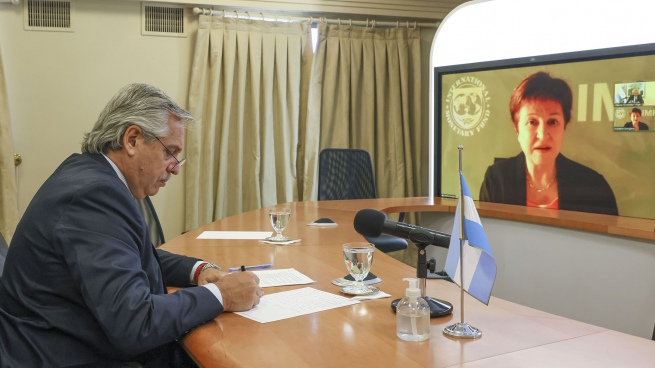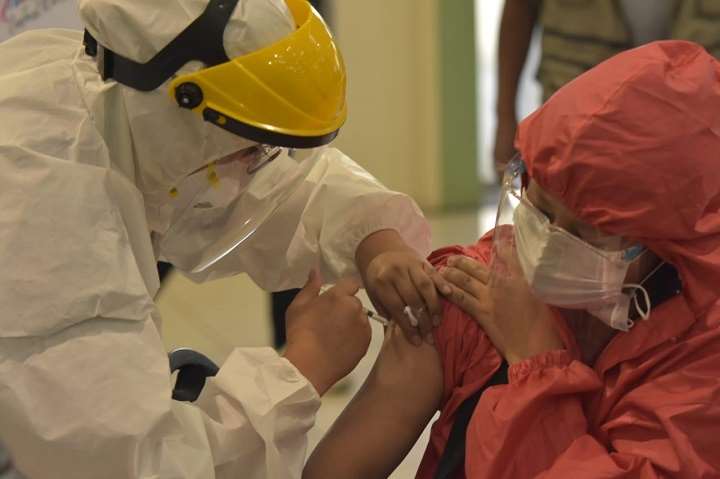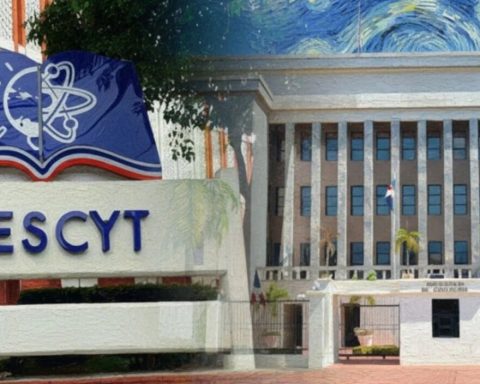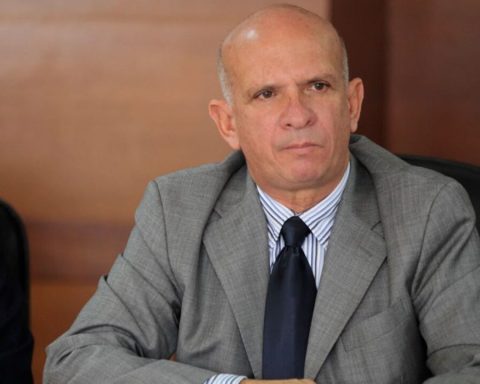President Alberto Fernández had a “constructive” conversation with the managing director of the International Monetary Fund (IMF), Kristalina Georgieva, in which both reaffirmed the importance of the Extended Facilities Program that the Board of Directors of the organization will discuss next Friday, reported this afternoon Casa Rosada fountains.
Through a zoom, in which he also participated The Minister of Economy, Martín Guzmán, who is in Paris, Fernández emphasized the “firm and determined commitment” with the fulfillment of the objectives of the Extended Facilities Program approved by Congress last week, in order to ensure that Argentina underpins the ongoing economic recovery and strengthens the conditions to reduce inflation in a sustainable way.
This Program aims to ensure that Argentina underpins the economic recovery underway and strengthens the conditions to reduce inflation in a sustainable manner.
During the dialogue, the President also stressed that the objectives of the Program are those of the Government and highlighted the broad parliamentary support, as well as that of social, academic, professional and trade union sectors.
Along these lines, Fernández also indicated that the agreement contemplates a strengthening of both public investment in infrastructure, science and technology as well as social inclusion policies and the transition from social plans to genuine employment, among others.
“The agreement will allow a responsible and passable path for our country, with greater predictability, certainties and a vision of the future, in an international context that presents profound challenges due to the war scenario,” sources indicated.
They also assured that the understanding “reaffirms Argentina’s absolute commitment not to postpone its economic growth with social justice.”
Giorgieva, through her account on the social network Twitter, also described “very constructive” to the conversation he had with President Fernández.
Very constructive call with President @alferdez. Discussed #Argentina‘s strong commitment to making their economic program a success. Looking forward to the IMF Executive Board’s discussion of the program on Friday. pic.twitter.com/ocUCHccm0F
— Kristalina Georgieva (@KGeorgieva) March 22, 2022
The head of the IMF said that the head of state conveyed to her Argentina’s commitment “to make its economic program a success”, in view of the discussion of the agreement that the Executive Board of the organization will carry out on Friday.
The conversation between the President and Georgieva took place almost on a par with the meeting that Minister Guzmán held in Paris with the president of the forum of creditor countries, Emmanuel Moulinin which they agreed on a new extension of the understanding reached in June 2021.
Likewise, the understanding reached includes financial guarantees from the Paris Club in support of the Extended Facilities program that has a duration of thirty months, allowing Argentina to secure the financial sources identified in the agreement with the IMF.
On June 22, the Argentine government had committed itself to the Paris Club to reach an agreement with the IMF before next March 31.
Thus, the country achieved a bridge of time, avoided default and obtained financial relief of USD2,000 million with this group of creditors while continuing to negotiate with the Monetary Fund.
Now, with the imminent endorsement of the agency’s Board of Directors to the extended facilities agreement, Argentina and the Paris Club have committed to conclude the process of definitive modification of the Agreement defined in the “2014 Joint Declaration” before June 30 of the current anus.
Regarding the IMF, the refinancing program agreed with the staff of the organization -which already has Parliamentary endorsement- for the debt of US$ 45,000 million contracted in 2018 during the administration of former President Mauricio Macri must be ratified by the board of directors of the IMF. IMF (board) this Friday, for the new plan to be formally launched, which will run until 2034 and includes fiscal, monetary and inflation goals.
The program will have in the first two and a half years 10 reviews that will be quarterly and the first disbursement will be US$9.8 billion, after the board gives its approval.
During the first year there will be net financing from the IMF equivalent to 0.7% of the Gross Domestic Product (GDP), to recover reserves.
And an extra financing of US$ 2,600 million from other multilateral organizations would be added, to help close this year’s fiscal pothole.
In this framework, it is projected that the external current account will remain in surplus, and together with an increase in foreign direct investment (FDI) and the inflow of net official flows, it will facilitate an accumulation of net reserves of US$ 15,000 million over the throughout the program and will reinforce the crawling peg regime.
Among the guidelines of the agreement, a rise in social spending and for infrastructure is foreseen, it does not contemplate the implementation of reforms in the labor and pension plan.
In addition, there will be more funds for social inclusion and more investment in public works, which will exceed the equivalent of 2% of GDP.
The agreement also provides for a reduction in the fiscal deficit with primary deficit targets of 2.5% of GDP in 2022, 1.9% of GDP in 2023 and 0.9% in 2024; in addition to the decrease in the monetization of the deficit to 1% of GDP this year.
The Government committed to reducing inflation through a combination of fiscal, monetary, and price and income policies.
In this context, by 2022 inflation is expected to be within a range of 38% to 48%; by 2023 at 34%/42%; and for 2024, the last year of the initial program with the IMF, in a range of between 29% and 37%, under a gradual scheme.
What’s more, The national government aims to reduce energy costs and improve the targeting of subsidies, while ensuring the protection of the lowest-income households.
The new rate segmentation scheme provides for the elimination of electricity and gas subsidies for the 10% of consumers with the greatest ability to pay as of June 1.
Last Saturday, the IMF extended until March 31 the term for Argentina to pay the interest and capital quota that were due yesterday and today for US$950 million and US$1,850 million, respectively, so that the country does not fall in a breach, along with the announcement of the board meeting to give final approval to the understanding.

















